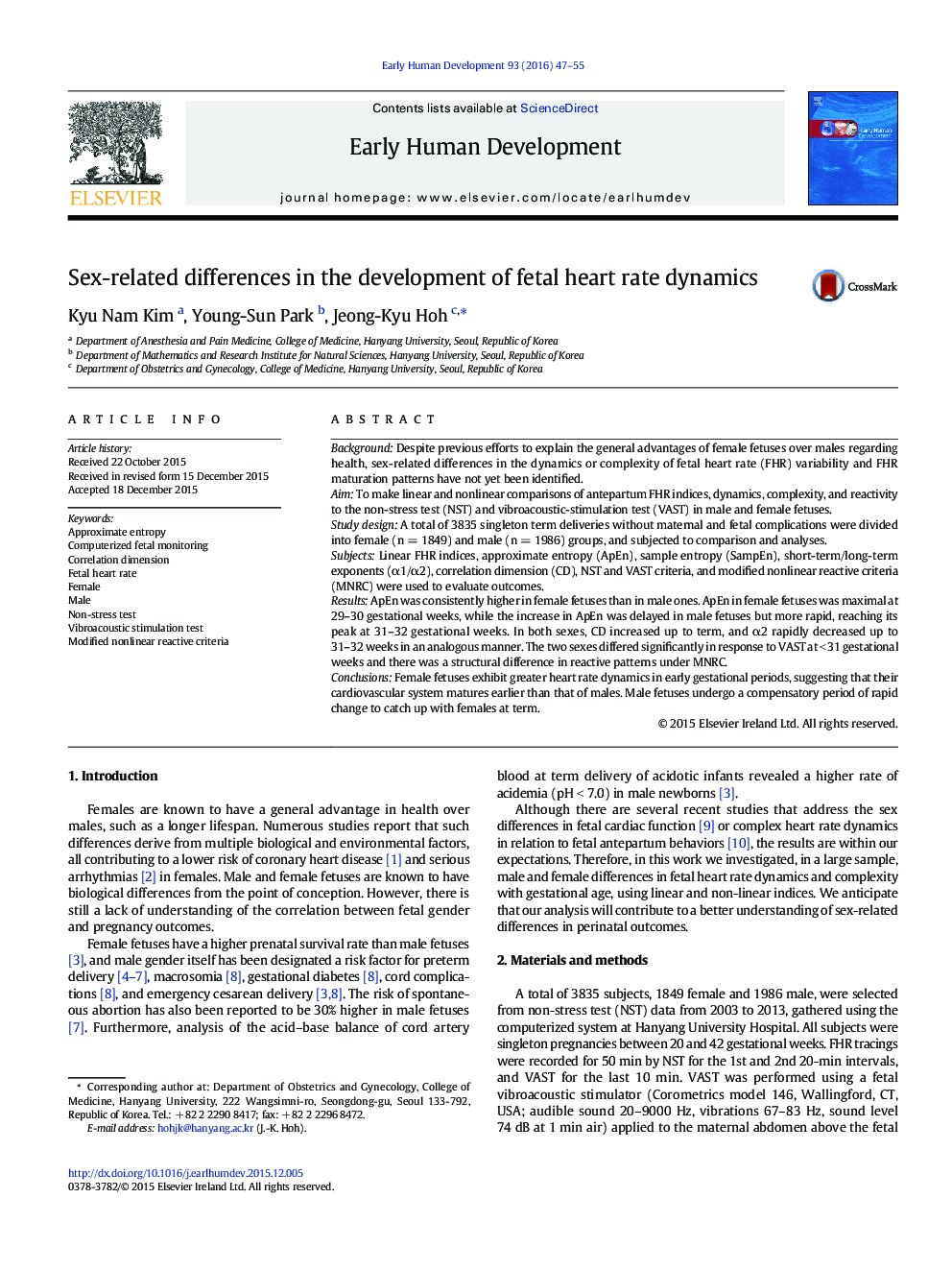| Article ID | Journal | Published Year | Pages | File Type |
|---|---|---|---|---|
| 3916560 | Early Human Development | 2016 | 9 Pages |
•We assessed sex-related differences in the development and maturation of fetal heart rate dynamics.•Female fetuses exhibit greater heart rate dynamics in early gestational weeks, suggesting an earlier maturation over males.•Male fetuses exhibit a compensatory period of rapid development in FHR dynamics and catch up with females near term.
BackgroundDespite previous efforts to explain the general advantages of female fetuses over males regarding health, sex-related differences in the dynamics or complexity of fetal heart rate (FHR) variability and FHR maturation patterns have not yet been identified.AimTo make linear and nonlinear comparisons of antepartum FHR indices, dynamics, complexity, and reactivity to the non-stress test (NST) and vibroacoustic-stimulation test (VAST) in male and female fetuses.Study designA total of 3835 singleton term deliveries without maternal and fetal complications were divided into female (n = 1849) and male (n = 1986) groups, and subjected to comparison and analyses.SubjectsLinear FHR indices, approximate entropy (ApEn), sample entropy (SampEn), short-term/long-term exponents (α1/α2), correlation dimension (CD), NST and VAST criteria, and modified nonlinear reactive criteria (MNRC) were used to evaluate outcomes.ResultsApEn was consistently higher in female fetuses than in male ones. ApEn in female fetuses was maximal at 29–30 gestational weeks, while the increase in ApEn was delayed in male fetuses but more rapid, reaching its peak at 31–32 gestational weeks. In both sexes, CD increased up to term, and α2 rapidly decreased up to 31–32 weeks in an analogous manner. The two sexes differed significantly in response to VAST at < 31 gestational weeks and there was a structural difference in reactive patterns under MNRC.ConclusionsFemale fetuses exhibit greater heart rate dynamics in early gestational periods, suggesting that their cardiovascular system matures earlier than that of males. Male fetuses undergo a compensatory period of rapid change to catch up with females at term.
